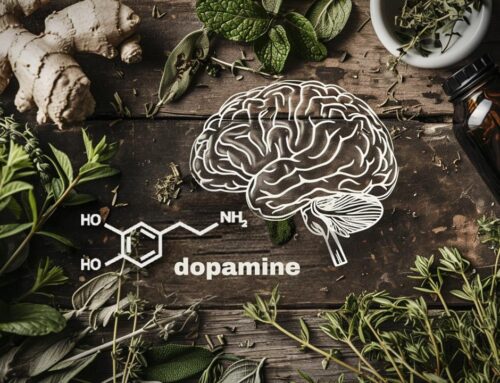DIY Organic Mouthwash – Natural Solutions for Oral Health
This Organic Mouthwash guide unveils the secrets to crafting your own mouthwash using organic, eco-friendly ingredients. Delve into the world of natural oral care, where each rinse not only promises a burst of freshness but also champions the health of your teeth and gums. From the soothing touch of aloe vera to the robust protection offered by essential oils, this guide is a treasure trove of recipes and insights, empowering you to transform your oral hygiene routine into a harmonious blend of nature’s best. Say goodbye to harsh chemicals and embrace a more personalized, sustainable approach to oral health.
Key Takeaways
- Discover the numerous benefits of creating your own organic mouthwash.
- Explore a variety of mouthwash recipes tailored to different oral health needs.
- Learn how to select the right ingredients to address specific dental concerns.
Table of Contents
- Introduction to DIY Organic Mouthwash
- Essential Oils and Their Role in Mouthwash
- Spices, Plant Products, and Their Oral Health Benefits
- Additional Ingredients: Abrasives, Whiteners, and More
- DIY Recipes and Choosing the Right Ingredients
- Selecting Ingredients Based on Oral Health Needs
- Frequently Asked Questions
- Final Thoughts
- Additional Resources
Introduction to DIY Organic Mouthwash
Moving away from commercial oral care products laden with chemicals, many are embracing the idea of creating their own mouthwash using organic, natural ingredients. This shift is not just about avoiding harsh chemicals; it’s a proactive approach to personal health and sustainability.
Why Choose DIY?
The primary allure of DIY organic mouthwash lies in its simplicity and transparency. You know exactly what goes into your mouthwash, ensuring that only the most beneficial, natural ingredients are used. This control over ingredients is especially important for those with allergies or sensitivities to certain chemicals commonly found in commercial mouthwashes.
Benefits for Oral Health
DIY organic mouthwash can be just as effective—if not more so—than store-bought alternatives. Ingredients like essential oils, baking soda, and herbal extracts, which are staples in homemade recipes, offer numerous oral health benefits. They can combat bad breath, help in reducing gum inflammation, and aid in the prevention of plaque build-up, all while being gentle on the mouth’s natural ecosystem.
A Step Towards Eco-Friendly Living
Moreover, creating your own mouthwash aligns with eco-friendly living. It reduces plastic waste associated with purchasing new bottles and allows for the use of sustainable, ethically sourced ingredients. Plus, the process of making mouthwash at home can be a rewarding and enjoyable experience, offering a sense of accomplishment and a deeper connection to your personal health routines.
Customization for Individual Needs
One of the greatest advantages of DIY organic mouthwash is the ability to tailor it to your specific needs. Whether you’re looking for a solution to sensitive teeth, aiming for whiter teeth, or needing something to freshen your breath, you can customize the ingredients to suit your unique oral health requirements.
As we explore the world of DIY organic mouthwash, remember that it’s not just about the end product; it’s about taking control of your health, understanding what you put into your body, and making a conscious choice towards a healthier, more sustainable lifestyle.
Essential Oils and Their Role in Mouthwash
The role of essential oils in DIY organic mouthwash cannot be overstated. These natural extracts, revered for centuries for their medicinal properties, are now gaining popularity in modern oral care. Essential oils don’t just add a refreshing aroma to mouthwash; they bring a plethora of health benefits crucial for maintaining oral hygiene.
Antimicrobial Powerhouses
Essential oils like peppermint, tea tree, and clove are known for their strong antimicrobial properties. They are effective in controlling harmful bacteria in the mouth, which can lead to tooth decay, gum disease, and bad breath. By incorporating these oils into mouthwash, you can significantly enhance your daily oral hygiene routine.
Peppermint Oil: The Classic Choice
Peppermint oil is perhaps the most popular choice for DIY mouthwash due to its invigorating minty flavor. It not only leaves your mouth feeling fresh but also has antimicrobial properties that help in reducing plaque and fighting oral pathogens.
Tea Tree Oil: A Natural Antiseptic
Tea tree oil is another essential oil widely used in organic mouthwash recipes. It acts as a natural antiseptic, helping to soothe inflamed gums and reduce bacterial growth. Its distinct aroma adds a unique freshness to the mouthwash while contributing to overall oral health.
Clove Oil: For Pain Relief and Cavity Prevention
Clove oil is renowned for its pain-relieving properties, especially useful for those with sensitive teeth or gums. It also plays a role in cavity prevention, thanks to its eugenol content, which has been shown to fight certain types of oral bacteria.
Customizing Your Mouthwash
The beauty of DIY mouthwash is the ability to customize your recipe to suit your taste and needs. Whether you prefer the cooling effect of peppermint or the soothing properties of tea tree oil, you can create a blend that works best for you. Some recipes even combine several essential oils to maximize their benefits.
A Note of Caution
While essential oils offer numerous benefits, it’s important to use them responsibly. Always dilute essential oils adequately to prevent any irritation or adverse reactions. People with specific allergies or health conditions should consult with a healthcare provider before using essential oils in their mouthwash.
Incorporating essential oils into your DIY organic mouthwash not only boosts its effectiveness but also provides a natural, chemical-free alternative to store-bought products. As we continue to explore organic mouthwash recipes, the versatility and efficacy of essential oils stand out as key elements in achieving optimal oral health.
Spices, Plant Products, and Their Oral Health Benefits
The use of spices and plant products in DIY organic mouthwash is a testament to the power of nature in supporting oral health. These ingredients, often sourced from traditional medicinal practices, offer a wide range of benefits that go beyond freshening breath. They provide natural ways to combat oral health issues while enhancing overall mouth wellness.
Aloe Vera: Soothing and Healing
Aloe vera, commonly used in DIY mouthwash, is celebrated for its soothing and healing properties. It’s particularly beneficial for people with sensitive gums or those suffering from mouth ulcers. Aloe vera’s anti-inflammatory properties help in reducing gum swelling and irritation, promoting a healthier oral environment.
Xylitol: Fighting Plaque and Cavities
Xylitol, a natural sweetener derived from plants, is another significant addition to organic mouthwash. Unlike traditional sugars that contribute to tooth decay, xylitol actually helps fight plaque and prevents cavities. It inhibits the growth of Streptococcus mutans, the primary bacteria responsible for tooth decay.
Turmeric: Natural Anti-Inflammatory Agent
Turmeric, with its long history in Ayurvedic medicine, is gaining popularity in oral care due to its potent anti-inflammatory and antioxidant properties. It can help in the prevention and treatment of gum disease and is effective in reducing dental pain and inflammation. Additionally, turmeric has been shown to have mild whitening effects on teeth, making it a valuable ingredient in mouthwash for those seeking a brighter smile.
Cinnamon and Clove: More than Just Flavor
Cinnamon and clove, commonly known for their warm and spicy flavors, also offer significant oral health benefits. Cinnamon has antimicrobial properties that help in reducing bacterial growth in the mouth, while clove, containing eugenol, is excellent for pain relief and gum health.
Balancing pH with Plant Products
Ingredients like apple cider vinegar and certain herbal teas are excellent for balancing the pH in the mouth. Maintaining a neutral pH is crucial in preventing tooth decay and keeping the oral microbiome healthy. These plant-based ingredients work to neutralize acids, thus helping to maintain a healthy oral environment.
The Role of Herbal Teas
Herbal teas, such as peppermint, sage, and chamomile, can be used as a base for mouthwashes. They offer gentle, natural antibacterial properties and provide a pleasant flavor to the mouthwash. Peppermint tea, for example, not only freshens breath but also has mild antibacterial properties.
Incorporating spices and plant products into your DIY organic mouthwash can significantly enhance its effectiveness. These natural ingredients offer a holistic approach to oral care, addressing various concerns from gum health to tooth decay prevention, all while providing a pleasant and refreshing oral care experience.
Additional Ingredients: Abrasives, Whiteners, and More
In the realm of DIY organic mouthwash, the addition of certain ingredients can elevate the effectiveness of your concoction. These include abrasives and whiteners, among others, which play a pivotal role in not only maintaining oral hygiene but also enhancing the aesthetic appeal of your smile.
L-Arginine: A Natural Remineralizer
L-Arginine, an amino acid found in many natural foods, is a standout ingredient in organic mouthwash recipes for its tooth remineralization properties. It helps in repairing and strengthening tooth enamel, providing a natural defense against tooth decay and sensitivity.
Calcium Carbonate: Gentle Abrasive
Calcium carbonate is a commonly used abrasive in organic mouthwashes. It’s effective in gently scrubbing away food particles and surface stains on teeth, contributing to a cleaner mouth and brighter smile. As a natural mineral, calcium carbonate is gentle enough for daily use without causing harm to the enamel.
Activated Charcoal: Whitening Agent
Activated charcoal is renowned for its teeth-whitening capabilities. It works by absorbing surface stains on the teeth, making it a popular choice for those looking to enhance their smile naturally. When used in mouthwash, activated charcoal can provide a gentle yet effective whitening effect.
Baking Soda: Versatile and Effective
Baking soda is a versatile ingredient in DIY mouthwash, known for its ability to neutralize acids in the mouth. This neutralization helps maintain a balanced oral pH, which is crucial for preventing tooth decay and bad breath. Additionally, baking soda’s mild abrasive quality aids in cleaning and whitening teeth.
Salt: The Age-Old Antimicrobial
Salt, particularly sea salt, is another ingredient that offers multiple benefits. Its antimicrobial properties help in reducing oral bacteria, and when used in a mouthwash, it can aid in healing mouth sores and reducing gum inflammation.
Hydrogen Peroxide: Antiseptic and Whitener
Hydrogen peroxide is commonly used for its antiseptic properties. In a diluted form, it can help kill bacteria, reduce gum inflammation, and serve as an effective whitening agent. However, it’s important to use it cautiously and in proper dilution to avoid irritation.
Colloidal Silver: Purifying Effects
Colloidal silver is sometimes included in DIY mouthwash recipes for its purported purifying effects. It’s believed to reduce inflammation and fight bacteria, though its use is more controversial due to limited scientific evidence supporting these claims.
Incorporating these ingredients into your DIY organic mouthwash can lead to enhanced oral health benefits, from remineralization and cleaning to whitening and bacteria control. It’s a testament to the versatility and efficacy of natural ingredients in oral care.
DIY Recipes and Choosing the Right Ingredients
Embarking on the journey of creating your own DIY organic mouthwash is both exciting and empowering. The key to success lies in choosing the right ingredients that cater to your specific oral health needs. This section provides insight into various DIY mouthwash recipes and guidance on selecting the most effective ingredients.
1. Hydrogen Peroxide Antiseptic Mouthwash
For those looking for an antiseptic mouthwash, a simple recipe combines hydrogen peroxide, distilled water, and salt. This mixture is particularly effective in reducing gum irritation and combating bacteria.
2. Soothing Aloe Vera Mouthwash
For a soothing effect, especially for sensitive gums or mouth ulcers, a mouthwash made from aloe vera water, baking soda, and peppermint oil is ideal. This blend not only eases discomfort but also helps in maintaining a healthy oral pH balance.
3. DIY Remineralizing Mouthwash
If remineralization is your goal, a mouthwash containing calcium carbonate, L-arginine, star anise pods, and blue-green algae can be beneficial. This combination works to strengthen tooth enamel and balance oral bacteria.
4. All-purpose Natural Turmeric Mouthwash
For overall oral health, a turmeric-based mouthwash, which also includes cloves and peppermint oil, can help prevent inflammation and maintain gum health. Turmeric is known for its anti-inflammatory properties, making it an excellent choice for a holistic mouthwash.
5. pH Balancing Baking Soda and Thieves Oil Mouthwash
To counteract the effects of acidic foods and drinks, a mouthwash with baking soda and thieves oil helps maintain the correct pH levels in the mouth, preventing tooth decay and enamel erosion.
Customizing Your Mouthwash
The beauty of DIY mouthwash is the ability to customize it to your specific needs. Whether it’s fighting bad breath, reducing gum inflammation, whitening teeth, or simply maintaining a healthy mouth, the choice of ingredients plays a crucial role. Consider the following when selecting ingredients:
- For Antimicrobial Properties: Choose ingredients like tea tree oil, cinnamon, or clove oil.
- For Soothing and Healing: Aloe vera, calendula, and chamomile are excellent choices.
- For Whitening and Cleaning: Activated charcoal, baking soda, and hydrogen peroxide are effective.
- For Remineralization: Look for ingredients like calcium carbonate and L-Arginine.
A Balanced Approach
It’s important to strike a balance between efficacy and gentleness. While some ingredients are potent in addressing specific oral health issues, they should be used in the right concentrations to avoid any adverse effects. Always test your DIY mouthwash in small batches and observe how your mouth reacts before regular use.
Creating your own DIY organic mouthwash allows you to tailor your oral care to your specific needs. By understanding the properties of each ingredient and how they can benefit your oral health, you can concoct a mouthwash that not only freshens your breath but also supports the overall health of your teeth and gums.
Here’s a useful video presentation on “Homemade Natural Mouthwash”.
Selecting Ingredients Based on Oral Health Needs
When it comes to creating a DIY organic mouthwash, one size does not fit all. The effectiveness of your homemade mouthwash largely depends on selecting ingredients that cater specifically to your oral health needs. Understanding the properties of various natural ingredients and how they address different oral concerns is key to formulating an effective mouthwash.
Addressing Specific Oral Concerns
- For Gum Health: If you’re prone to gum issues like gingivitis or periodontitis, ingredients with anti-inflammatory and antibacterial properties are crucial. Aloe vera is excellent for soothing inflamed gums, while essential oils like tea tree and peppermint offer antibacterial benefits. Clove oil, known for its eugenol content, can also help in reducing gum pain and inflammation.
- Combatting Bad Breath: Bad breath, or halitosis, often results from bacteria buildup in the mouth. Natural antibacterial agents like cinnamon, spearmint, or eucalyptus oil can be effective in combating these bacteria. Additionally, ingredients like parsley oil, known for its deodorizing properties, can be included to freshen breath.
- Tooth Whitening and Stain Removal: For those looking to brighten their smile, ingredients like activated charcoal and baking soda can be used for their mild abrasive qualities that help remove surface stains. Hydrogen peroxide, in safe and diluted amounts, can also serve as a natural whitening agent.
- Remineralizing Enamel: To aid in tooth remineralization and prevent decay, ingredients like calcium carbonate and L-arginine are beneficial. These ingredients help to strengthen the tooth enamel and can be particularly helpful for those with sensitive teeth.
Considerations for Sensitive Mouths
- If you have a sensitive mouth or allergies, it’s crucial to choose ingredients that are gentle yet effective. Opt for mild essential oils and avoid harsh abrasives or high concentrations of acidic components. Herbal teas like chamomile or sage can be used as soothing bases for your mouthwash.
Balancing pH Levels
- Maintaining a balanced pH in the mouth is essential for preventing tooth decay and enamel erosion. Ingredients like baking soda and apple cider vinegar, known for their pH-balancing properties, can be included in your mouthwash recipe to neutralize oral acidity.
Testing and Adjusting
- It’s important to remember that everyone’s oral microbiome is unique. What works for one person may not work for another. Start with small batches of your DIY mouthwash and test them for a few days. Pay attention to how your mouth reacts and adjust the ingredients as needed. If you experience any irritation or adverse effects, discontinue use and consult with a dental professional.
Selecting the right ingredients based on your specific oral health needs is crucial in creating an effective DIY organic mouthwash. By carefully considering each ingredient’s properties and how they align with your oral health goals, you can formulate a mouthwash that not only freshens your breath but also supports the overall health of your teeth and gums.
Frequently Asked Questions
Final Thoughts
As we conclude our exploration of DIY organic mouthwash, it’s important to reflect on the key insights and benefits this practice offers. Creating your own mouthwash is not just about oral hygiene; it’s a step towards embracing a more natural, health-conscious lifestyle.







Leave A Comment